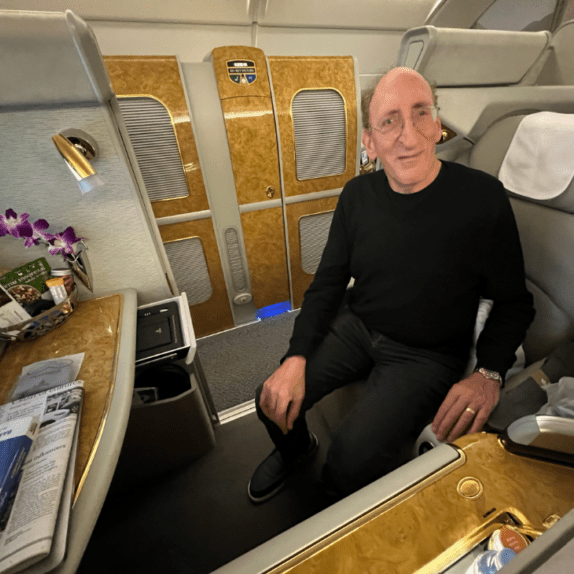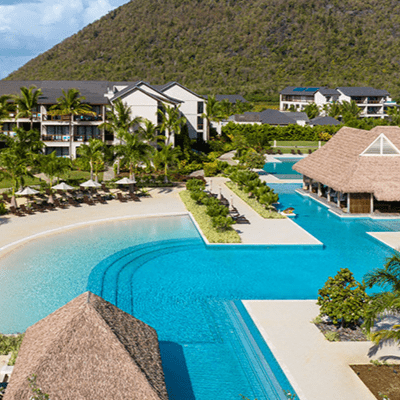
The hospitality industry will always be fraught with challenges that we must overcome if we are to stay afloat. But as they say, the more things change the more they stay the same. I’ve always stressed that hospitality is, at its core, a business of people interacting with people. If you are able to deliver service with a smile, then your job is already half done.
It’s nice then to reconnect with an old colleague and veteran hotelier who lives by this tenet each and every day. Andrew Carey is the CEO of Newport Hospitality Group (NHG), a hotel management and development company with a diverse portfolio throughout the Eastern United States that includes top flags like Hilton, Marriott, Hyatt, IHG, Choice and Wyndham as well as a few independents.
Throughout its nearly 30 years in operation, NHG has accrued numerous awards from its brand partners, praising the company’s teams as well as its ability to drive revenue and asset value. Additionally, NHG became a Marriott Partnership Circle Award winner for 2017.
All told, NHG understands the necessity of service, and in particular the concept of value luxury, denoting how all guests are discerning, no matter the price. As our industry continues to be disrupted by new technologies, new channels and alternate lodging experiences, service will be our constant, and on that note, let’s hear what Andrew has to say.
How is the modern guest experience changing at flagged properties?
This may seem simplistic, but the core guest demand has never changed. Guests look for value luxury. What I mean by this is that they want an experience that is personally luxurious while also being affordable. They do not necessarily need a cutting-edge tech experience, but they absolutely require a cutting-edge personal experience. They need touch on their terms. Some folks want concierge support, others want to chart their own course, but everyone wants a smiling, welcoming face to greet them. Too often hoteliers miss this requirement and cut staffing and training to a minimal level in order to save costs. At our hotels, we encourage owners to spend on guest-facing items, so that we can overdeliver on the promise of experience excellence.
What activities should a hotel management company undertake nowadays to add value?
The most critical areas of focus are twofold. Hotels need to be critically involved in their communities. They need to act as hubs, supporting neighborhoods and businesses. This behavior will create a strong bond between the hotel and local advocates.
Next, on a value side, hotels must invest in their associates. Too often hotels look to pay the lowest possible wage to their hourly employees. This work is difficult and the hours are long – why would a sensible person take this job when they could work an easier job for equivalent pay?
When you think of guest service, what are customers looking for?
As I mentioned earlier, guest needs have not really evolved in the past decades. Hotel guests are looking for a warm, comfortable environment that puts a smile on their faces as they go about their days. This is achieved by both big and small magical moments – a cookie at check-in, an unexpected upgrade or a smile with welcoming comment from a housekeeper. We are a service business and good service will always convert a guest into a long-term friend.
This is not to say that a hotel can afford to let its physical infrastructure slip out of style or fall apart. We need to provide clean, polished and sound living environments. They do not necessarily need to be bleeding edge, but they do need to delight.
As we move into a world of increasing hotel product differentiation, what will define properties at the midscale and upper-midscale?
Service! I have said it before. We live in a world of widespread brand proliferation which has made it difficult for guests in the midscale and upper-midscale to understand what separates various properties. The critical area of differentiation will always be service that delights. I do not believe that guests can tell the difference between two good beds, but they can always tell where they felt most welcomed and comfortable. Guests want a safe and vibrant accommodations experience. Those hotels with great teams and strong community ties will always be best situated to provide that environment.
What’s in store for the major chains in the next decade?
There are two great challenges on the horizon. The first issue that we are facing today is the availability of motivated associates. We cannot deliver excellent hotel stays if we are understaffed or are experiencing disruptive associate turnover. To overcome this, we must start treating our employees as critically involved members of our communities. They need to be trained and supported as individuals.
The second area of concern is how to adopt technology in a thoughtful and practical manner. The past decade has seen an unprecedented acceleration in consumer technology and this pace is unlikely to slow. To this end, hotel brands must be careful to adopt proven technologies that enhance the stay experience rather than provide flash in a pan. Technology solutions are expensive when rolled out across hundreds of rooms, so their impact must be measurable, experiential and centered around driving guest preference. If we succeed in this task, we can face any hospitality competitor.































